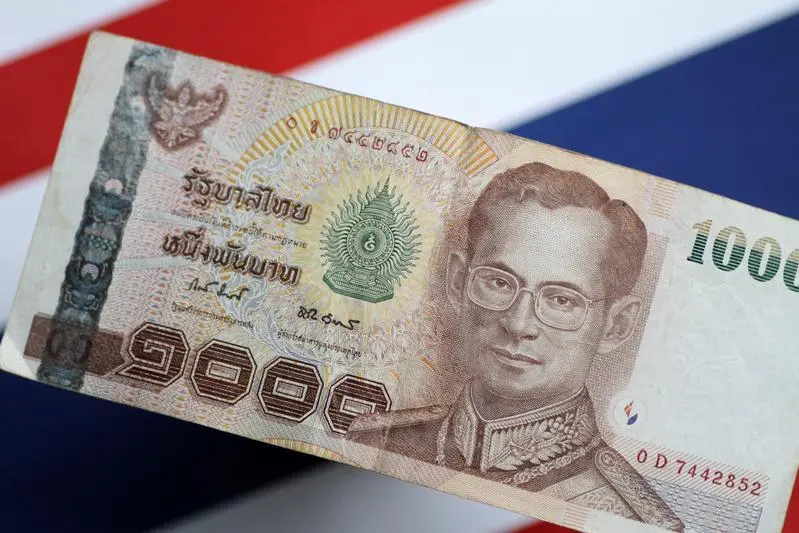PHOTO
Thailand's 500 billion baht ($13.51 billion) digital wallet stimulus policy was given cabinet approval on Tuesday, Prime Minister Srettha Thavisin said, clearing another hurdle for the signature policy of the ruling Pheu Thai party.
The handout would give 10,000 baht to 50 million Thais to be spent in their local communities over a six-month period and aims to jumpstart sluggish growth in Southeast Asia's second-largest economy as it struggles with soaring household debt.
The scheme could add 1.2 to 1.6 percentage points to economic growth and would help the economy grow at least 5% next year, officials have said. The handout plan, Pheu Thai's key platform in the 2023 election, had been delayed to the fourth quarter due to a lack of funding. The government was scrambling until earlier this month to find ways to finance the scheme without overly burdening public debt.
The government says it will draw funding from 2024 and 2025 fiscal budgets and capital from the state-owned Bank for Agriculture and Agricultural Cooperatives.
Economists and experts including two former central bank governors have warned against the policy, saying it risked violating fiscal discipline, which the government has rejected.
Academics and opponents have also questioned the legality of tapping into state-bank coffers to finance the handout.
Deputy Finance Minister Julapun Amornvivat reaffirmed its fourth-quarter launch date and said experts had been consulted on the legality of the plan.
"There will be stimulus in job creation, economic activity and investment," he added.
Thailand's economy unexpectedly shrank 0.6% in the final quarter of 2023 from the third, prompting the state planning agency to cut its 2024 growth outlook to between 2.2% and 3.2% from the 2.7% to 3.7% earlier projected.
Growth in 2023 was 1.9%, slower than expected and less than 2.5% growth in 2022.
($1 = 37.0000 baht) (Reporting by Chayut Setboonsarng and Panarat Thepgumpanat, Editing by John Mair, Martin Petty)





















